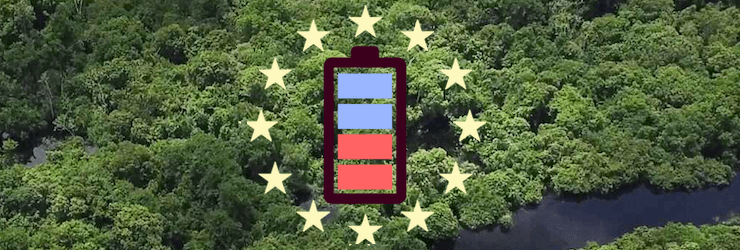As we navigate today's global environmental challenges, the circular economy offers a refreshing perspective, showing us how to do more with less. By rethinking how we produce, consume, and dispose of goods, we can create a more resilient and resource-efficient future. Join us as we uncover the exciting potential of circular economy to tackle waste, conserve resources, and drive positive change.
What is Circular Economy?
Circular economy (CE) is a regenerative economic system that aims to redefine the traditional linear model of "take-make-waste" into one that is restorative and sustainable. At its core, circular economy seeks to minimize waste and maximize resource efficiency by designing products and systems that can be reused, repaired, remanufactured, and recycled.
Transition from Linear to Circular Economy
The transition from a linear to a circular economy involves a fundamental shift in mindset and approach. Instead of viewing resources as finite and disposable, circular economy advocates for the continuous circulation and regeneration of materials and products. This transition requires innovation across all stages of the product lifecycle, from design and production to consumption and disposal. It involves rethinking supply chains, promoting sustainable design principles, and fostering collaboration among stakeholders to create closed-loop systems where waste is minimized, and resources are conserved.
Cradle-to-Grave vs. Cradle-to-Cradle
In traditional linear systems, products follow a cradle-to-grave lifecycle, in which they are produced, used, and finally disposed of in landfills or incinerators. However, circular economy introduces the concept of cradle-to-cradle, where products are designed to be continually cycled back into the economy as valuable resources. Unlike cradle-to-grave, cradle-to-cradle aims to eliminate the concept of waste by ensuring that materials are perpetually reused and regenerated, creating a closed-loop system that mimics natural ecosystems.
 .
.
Circularity Principles to Ensure Sustainability: From 3 R’s to 10 R’s Strategies
One commonly known set of circular economy principles is the "3 R's": Reduce, Reuse, Recycle. This approach emphasizes minimizing waste by reducing consumption, reusing products or materials whenever possible, and recycling resources to extract their value. Extending the life of a product allows it to remain in use for as long as possible, thereby maximizing its utility and reducing the need for new resources.
However, as the circular economy concept evolves, additional principles have been proposed to enhance its effectiveness. These include the "5 R's", which add Refuse and Repair, encouraging consumers to refuse unnecessary purchases and repair items to extend their lifespan. Further iterations, such as the "7 R's" and "10 R's", expand on these concepts by incorporating notions like Rethink, Rot, Recover, and Respect. Each set of principles underscores the importance of adopting a holistic approach to resource management, promoting responsible consumption, and minimizing environmental impact throughout the entire product lifecycle.
The Role Waste Management - the Quest for Zero Waste
When talking about the circular economy, the goal of zero waste is certainly one of the most central aspects. In today's linear economy – driven by a „take-make-waste“ approach, waste is often seen as a byproduct of consumption, leading to unsustainable levels of waste generation. However, circular economy emphasizes the importance of reducing, reusing, and recycling materials to keep them in circulation and out of landfills. In this way, the waste itself becomes a valuable resource, the use of which in turn conserves natural resources.
Shifting from traditional waste disposal to resource recovery and recycling systems helps create value from waste. Key approaches include waste prevention, source separation, and advanced sorting technologies to enhance recycling efficiency. Investment in infrastructure for material recovery facilities and closed-loop recycling systems is crucial. Extending producer responsibility and implementing policies to incentivize circularity further promote the transition to a circular economy in waste management.
Hidden Costs of Waste
Another perspective is the view of waste in manufacturing companies. It is worth taking a closer look here, as the true costs of these material losses often remain hidden. For example, material losses at the end of the value chain cause higher costs, because more energy and working time was used on them (a view that applies to the same extent, if not more, to waste by consumers). Uncovering these hidden costs is the goal of Material Flow Cost Accounting (MFCA). It tracks the flow of materials and associated costs throughout the production process. By quantifying material losses, MFCA enables companies to pinpoint areas for improvement and implement measures to minimize waste generation.

Current Trends in the Circular Economy
The current trends in the circular economy encompass a diverse array of innovative practices. Let`s dive into some of these trends aiming at minimizing waste and maximizing resource efficiency across various industries:
- Zero-waste manufacturing: emphasizing the reduction and elimination of waste throughout the production process
- Product-as-a-service models: promoting the leasing or sharing of products to extend their lifespan and usage
- Extended Producer Responsibility (EPR): holding manufacturers accountable for the entire lifecycle of their products, incentivizing sustainable design and disposal practices
- Sharing economy: encouraging the shared use of resources, reducing consumption and waste generation
- Refurbishing activities: restoring used products to extend their lifespan and reduce the demand for new goods
- Modular and circular designs: prioritizing products that are easy to repair, upgrade, and disassemble, facilitating material recovery and recycling
- Waste-to-energy conversion: processing transform waste materials into energy sources, contributing to both waste reduction and renewable energy production
- Sustainable packaging solutions: minimizing environmental impact of packaging by utilizing recyclable or biodegradable materials
- Circular supply chains: integrating principles of circularity through the entire supply chain, such as product reuse and remanufacturing, to create closed-loop systems that minimize waste and resource depletion
- Digital circular economy: leveraging technologies like IoT, blockchain and software solutions to enable efficient resource management and product traceability for real-time environmental information
Benefits of Circular Economy for Companies
Research still paints an ambiguous picture of the impact of companies’ incorporation of sustainability and circular economy goals on their financial performance. Nevertheless, a 2020 study by Accenture and others on responsible leadership has shown a correlation between high environmental, social, and corporate governance (ESG) performance ratings and a high operating margin and annual returns to shareholders, clearly leaving low ESG performers behind. With the growth of circular economy business models, we can expect this impact on financial performance to increase.
A study by Material Economics found a positive macroeconomic impact of the circular economy. In the EU, their findings predict the creation of as many as 700 000 netjobs by 2030 and a reduction of up to 535 billion Euro per year of the total cost of providing goods and services in several key value chains such as mobility, housing, and food. This translates into a productivity increase of 15 % in the value chains that account for 60 % of household spending. According to McKinsey & Company Europe’s circular economy opportunity report, the modeling for 2030 suggests that the disposable income of European house-holds could be as much as 11 % higher in the circular scenario relative to the current development path, or 7 % higher in GDP terms, thus making the transition towards a circular economy an important factor to generate economic growth and renewal.
Industrial leaders also capture these economic opportunities for a circular economy strategy. Renault, for example, has opened a so-called Re-Factory in Flins, the world's first ‘‘Circular Factory’’, and announced an economic target from their circular economy activities of 1 billion euro by 2030. Volkswagen opened its first battery recycling facility in 2021 and is considering treating its battery and battery recycling business divisions as separate companies – even taking them public.
There are also several studies indicating that switching to a circular economy is a promising approach to meet the requirements of a more climate-friendly economy. By adopting CE principles, companies can unlock a myriad of benefits, ranging from cost savings and resource efficiency to enhanced brand reputation, resilience and competitiveness.
Revolutionizing Industries: CE Solutions in Action
Incorporating circular economy principles can vary depending on the industry. Let's explore how different industries can embrace circular economy practices to achieve greater efficiency, reduce waste, and enhance environmental stewardship.
Turning Wheels: CE in Automotive Industry
The automotive industry is ripe for circular economy innovations. From designing vehicles for disassembly and recycling to implementing take-back programs for end-of-life vehicles, automakers can significantly reduce their environmental footprint. Furthermore, the adoption of lightweight materials, electrification, and shared mobility services presents opportunities for greater resource efficiency and reduced emissions across the automotive value chain to increase sustainability in the automotive industry.
Wired for Sustainability: CE in Electronics Industry
The electronics industry faces unique challenges due to the rapid pace of technology innovations and short product lifecycles. However, by prioritizing product longevity, repairability, and material recovery, electronics manufacturers can minimize electronic waste and maximize resource utilization. Initiatives such as modular design, component reuse, and responsible e-waste management are essential for promoting a circular economy in the electronics sector.
Breaking the Mold: CE in Plastics Industry
The plastics industry faces increasing scrutiny due to its significant environmental impact, particularly in terms of pollution and waste. However, circular economy principles offer promising solutions for addressing these challenges. By redesigning products for recyclability, investing in advanced recycling technologies, and promoting the use of bio-based plastics, the plastics industry can reduce its reliance on virgin materials and mitigate environmental harm. Additionally, initiatives such as extended producer responsibility and plastic waste collection and recycling programs are crucial for creating a circular economy in the plastics sector to keep them in the economy and out of the environment.
Unlocking Your Circular Economy Potential with Our Solutions

Our innovative circular economy solutions are tailored to meet the unique needs of your business, enabling you to implement circular economy principles across your operations.
With Umberto, our LCA software for experts, you can assess the environmental impact of your products along their entire life cycle and thus lay the foundation for circular products. Building on this, you can use our product sustainability software to automate the environmental assessment of your products and integrate it into other business processes, e.g. to ensure sustainable design and to enable purchasing to opt for raw materials with a lower climate impact.
Our sustainability consulting services are designed to empower businesses in their journey towards sustainability and resource efficiency. Whether you're looking to streamline your operations, optimize resource usage, or enhance your environmental performance, we have the tools and expertise to help you succeed.
Ready to unlock your circular economy potential? Contact us today to learn more about how our solutions and services can help you achieve your sustainability goals.




.png)

